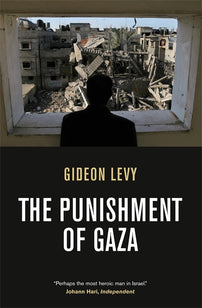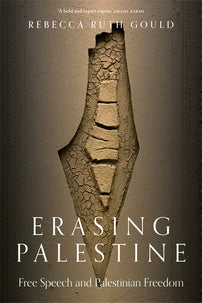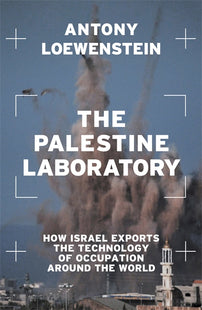Michel Warschawski: “We have gone beyond war crimes in Gaza.”
In the face of extreme repression of political debate, Israeli writer and journalist Michel Warschawski argues that Israel is in the process of perpetrating “a crime against humanity” in the Gaza Strip.

**This interview was originally conducted by Rachida El Azzouzi and published by Mediapart on October 28, 2023.
An important figure in the pacifist movement and on the Israeli left, the writer and journalist Michel Warschawski denounces, in an interview in Mediapart, “the crime against humanity” perpetrated by the Jewish state against the civilian population of Gaza.
Mediapart: In its counterattack in response to the massacres by Hamas on its own soil, Israel has been bombing, since October 7, in an indiscriminate way, the Gaza Strip, killing and wounding thousands of civilians. This night of bombings has been one of the most intense in the Palestinian enclave, which has been cut off from the world (through Internet and telecommunications) by the Jewish state. How would you characterize these acts of violence?
Michel Warschawski: We have gone beyond war crimes; we are faced with a crime against humanity in Gaza. The International Criminal Court must take up the matter. The population of Gaza is once again paying the heavy price, without so much as this carnage, these thousands of Gazan dead, calming Israeli public opinion, which feels itself very threatened.
I am very troubled by the folly of our extreme right-wing government, which is scarcely affected by the international pressure and the discussions aimed at calming the situation. We are facing extremist diehards who are increasingly incompetent and thuggish. Netanyahu is their hostage. And this is frightening.
Is the barbarism and blind vengeance on both sides the new compass of a conflict that had been dormant for decades?
First, I refuse the notion of a symmetry between the two parties. There is an occupier and an occupied. Even if the occupied may use methods that are intolerable and that one must denounce. We must never forget: Israel is the occupier, and it holds the keys to the solution. The Palestinians are pushed to the limit, but also driven by the thought of a sense of dignity: “Since we must die, let us die in fighting for our land.”
I have been quite horrified, and still am, by the massacres committed by Hamas. There is in all of us a great heaviness, which weighs us down. My daughter and her friends began to cry on October 7, and we men a few days after. What struck me the most was certainly the violence, even if I can understand where it comes from, from a political direction, from a population in Gaza that lives in a pressure cooker that can, at any moment, explode.
But what also struck me was the absence of the state, of Benjamin Netanyahu and his allies on the extreme right. It was the civil society that took the matter in hand. And even today, for example, the welcoming of refugees in the Jewish localities around Gaza is done by associations, groups of citizens, not by the state. To the extent that Netanyahu, for the first time, said, “When the war is over, we will have to do an accounting.” The state has been at the bottom of it all.
You say, “Israel holds the keys to the solution.” What is this solution?
To withdraw from the occupied territories. And to not provoke a new Nakba [“catastrophe” in Arabic, in reference to the flight or expulsion from their homes of nearly 760,000 Palestinian men and women during the first Israel-Arab war, which coincided with the creation of the state of Israel - ed.]. An Israeli government minister has declared that it is necessary to finish the task of 1948. This idea, according to which we have retained far too many Palestinians in our territory, is the obsessional idea of our government, which it understands as creating the opportunity to clean up Israel and create a state which is demographically Jewish, that is to say, a state composed uniquely or almost uniquely of Jews.
This is in continuity with the Basic Law that was voted in two years ago: Israel as the nation of a people, as nation-state of the Jewish people. This is totally contrary to the commitments made by the young state of Israel in order to be accepted by the UN in 1949. It is a matter not only of no longer recognizing the national rights of the Palestinians, but also of getting rid of them as quickly as possible.
The Israel-Palestinian conflict returns to the forefront of the geopolitical world scene in the bloodiest manner. This unprecedented murderous violence, is it also the consequence of the repression of the Palestinian question, which several diplomatic circles, in the West as well as in Arab countries, had hoped to bury, notably through the Abraham Accords?
Yes, the Israel-Palestinian conflict is there, always very present. Some have believed, among them some of those who are in power in Israel, that the Palestinian question could be completely ignored and things normalized, as if it had nothing to do with Israel’s relationships with the Arab countries. They have been greatly mistaken.
Israel wants to have its cake and eat it too; that is to say, on the one hand to normalize matters, but on the other to change nothing in its policies. I have seen images on television of large demonstrations that have taken place in Arab countries like Morocco. The Arab governments are all the same dependent on a certain public opinion that clearly sympathizes with the suffering of the Palestinians.
What happened on October 7 is a question of necessity. I meet twice a week in a little cafe with some friends, more on the left than the right, but not necessarily on the extreme left, people who are of an advanced age. They are not in a mood of vengeance. These are people of good sense generally, but still I had to explain to them to what extent this violence was inevitable.
Why was this violence inevitable?
Because that is the principle of the pressure-cooker exploding! One cannot put two million people in a pressure-cooker in Gaza without recognizing that it is going to explode sooner or later. Two million people have been enclosed in a miniscule territory and subjected to a blockade for a decade.
These two million people have rights, to start with the right to exist, to breathe. Israel has subjected them subsequently to a complete siege in reprisals, has cut off their water, food, medications, electricity, Internet, and telecommunications. Its response is unacceptable.
I see, in the West, notably in France, pitiful debates, which are not appropriate to the extreme gravity of the moment. Instead of using all of their leverage to try to impose an immediate cease-fire, many political leaders prefer to pledge allegiance to Israel. They are, before the eyes of the entire world, accomplices in a crime against humanity.
Can the Israeli left still talk to Israelis about the Palestinian reality after October 7, or is it dying?
It has been in bad shape for some time and it’s not getting any better. What constituted the strength of the Israeli left is that it was Judeo-Arab. And the fact of being Judeo-Arab also gave it numerical force. Israeli Jews were in the minority in it. But, since 2000, the Judeo-Arab front has taken a terrible blow, reducing the numerical weight of antiwar and anti-occupation demonstrations. We are paying for this today.
Do you still have even a little bit of hope?
My grandfather, with the wisdom of a Polish Jew who had emigrated to France without much education, told us: “We don’t know what the future holds, so we may as well bet on the best and not on the worst.” This is my character. I know that there are possibilities. It is not only a question of political good will and international pressure. Besides, it cannot be excluded that this murderous sequence will precipitate the fall of Netanyahu, which would be for me a great personal joy, shared by many Israelis.
Israeli public opinion is very volatile. It can be hyper-bellicose today and very rapidly jump to what looks like a solution. Tel-Aviv is turned entirely toward Europe, toward the West. And then, there is the rest of Israel. It is a bit like [in France] your cities and banlieues [working-class suburbs]. These are populations that vote for the right generally, unlike in Tel Aviv, which is much further to the left, the centre left.
And this break, in my opinion, is going to become more pronounced. There are two Israels. Indeed, we have for decades called our suburbs the “second Israel,” these poor town that are found notably on the frontier of Gaza.
Translated by William Heidbreder
[book-strip index="1"]


